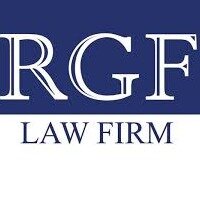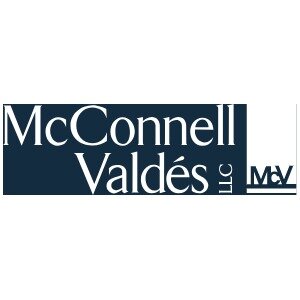Best Mortgage Lawyers in Puerto Rico
Share your needs with us, get contacted by law firms.
Free. Takes 2 min.
Free Guide to Hiring a Real Estate Lawyer
Or refine your search by selecting a city:
List of the best lawyers in Puerto Rico
About Mortgage Law in Puerto Rico
The concept of a mortgage in Puerto Rico is similar to that in the United States, but it is important to understand the nuances and local applications. In Puerto Rico, a mortgage is a legal agreement where a property is used as collateral for a loan. This system allows individuals to purchase real estate by borrowing money, which is then paid back over time, typically with interest. Mortgage transactions in Puerto Rico are governed by both local and federal laws, and they entail specific procedures and protections for both lenders and borrowers.
Why You May Need a Lawyer
There are several situations where legal assistance may be beneficial when dealing with mortgages in Puerto Rico:
- Understanding the terms and conditions of a mortgage contract.
- Refinancing an existing mortgage to secure better terms.
- Dealing with foreclosure or avoiding foreclosure through negotiation or modification.
- Navigating disputes with lenders or co-owners regarding mortgage obligations.
- Handling issues related to inheritance of mortgaged property.
Having a lawyer can ensure that your rights are protected and can provide guidance through complex legal procedures.
Local Laws Overview
Puerto Rico has specific laws that affect the mortgage process. Key aspects include:
- The Puerto Rico Civil Code governs many aspects of property transactions, including mortgages.
- The Puerto Rico Registry of Property records publicly available information about property ownership and any encumbrances, such as mortgages.
- Foreclosure laws and procedures differ slightly from those in the U.S., often including judicial processes.
- Lenders must comply with the Consumer Protection Act to ensure transparency and fairness in mortgage agreements.
Understanding these local laws is crucial to ensure compliance and protect your rights as a borrower or homeowner.
Frequently Asked Questions
What is a mortgage? How does it work in Puerto Rico?
A mortgage is a loan secured by real property that the borrower must repay with a predetermined set of payments. The borrower retains ownership and use of the property, and upon payment, the mortgage is released.
What is the role of the Property Registry?
The Registry of Property is a government office where property ownership and encumbrances, such as mortgages or liens, are recorded. It ensures transparency and protects property rights.
Can I refinance my mortgage in Puerto Rico?
Yes, refinancing is a common practice where you replace your existing mortgage with a new one that ideally has better terms. Legal advice is often necessary to navigate the process and understand new agreements.
What happens if I default on my mortgage payments?
If you default, the lender may start foreclosure proceedings, which are typically judicial in Puerto Rico. It is advisable to seek legal assistance to explore alternatives like loan modification or negotiation.
Are there tax implications associated with mortgages in Puerto Rico?
Yes, there may be tax implications. Interest paid on a mortgage can potentially be deductible. Consulting with a tax advisor or lawyer is recommended.
How do I avoid foreclosure?
To avoid foreclosure, communicate with your lender early, consider loan modification, refinancing, or seek help from a legal expert who can negotiate on your behalf.
Can I assume an existing mortgage in Puerto Rico?
Mortgage assumption, where a buyer takes over the seller's mortgage, is possible but depends on the lender's approval. Legal advice is crucial in this situation.
Is a lawyer required to close on a mortgage in Puerto Rico?
While not mandatory, having a lawyer during closing can ensure that the contract is fair and all local laws are observed, reducing the risk of future legal issues.
How does foreclosure proceed in Puerto Rico?
Foreclosures in Puerto Rico generally require judicial proceedings. This can be a complex process, and legal representation is highly beneficial.
What is a title search, and why is it important?
A title search assesses the property's history to identify any defects or encumbrances. It's a crucial step to ensure you receive a clear title and to avoid future legal problems.
Additional Resources
For more information or assistance, consider the following resources:
- Puerto Rico Office of the Commissioner of Financial Institutions (OCIF): Supervises financial services and can assist with complaints against lenders.
- Legal Aid Societies: Provide free or low-cost legal services to eligible individuals.
- HUD-approved Housing Counseling Agencies: Offer guidance on buying a home, foreclosure prevention, and other housing issues.
Next Steps
If you need legal assistance with a mortgage in Puerto Rico, consider the following steps:
- Research and choose a qualified mortgage attorney with experience in Puerto Rican law.
- Schedule a consultation to discuss your specific situation and determine the best course of action.
- Prepare any relevant documents such as mortgage agreements, payment records, and communication with lenders prior to your consultation.
- Continue educating yourself about your rights and responsibilities as a homeowner or borrower to make informed decisions.
Taking these steps can help safeguard your financial and legal interests in the mortgage process.
Lawzana helps you find the best lawyers and law firms in Puerto Rico through a curated and pre-screened list of qualified legal professionals. Our platform offers rankings and detailed profiles of attorneys and law firms, allowing you to compare based on practice areas, including Mortgage, experience, and client feedback.
Each profile includes a description of the firm's areas of practice, client reviews, team members and partners, year of establishment, spoken languages, office locations, contact information, social media presence, and any published articles or resources. Most firms on our platform speak English and are experienced in both local and international legal matters.
Get a quote from top-rated law firms in Puerto Rico — quickly, securely, and without unnecessary hassle.
Disclaimer:
The information provided on this page is for general informational purposes only and does not constitute legal advice. While we strive to ensure the accuracy and relevance of the content, legal information may change over time, and interpretations of the law can vary. You should always consult with a qualified legal professional for advice specific to your situation.
We disclaim all liability for actions taken or not taken based on the content of this page. If you believe any information is incorrect or outdated, please contact us, and we will review and update it where appropriate.
Browse mortgage law firms by city in Puerto Rico
Refine your search by selecting a city.










